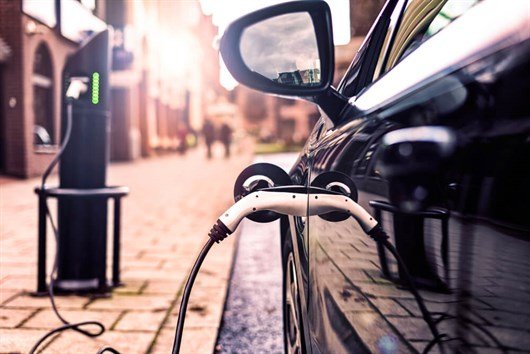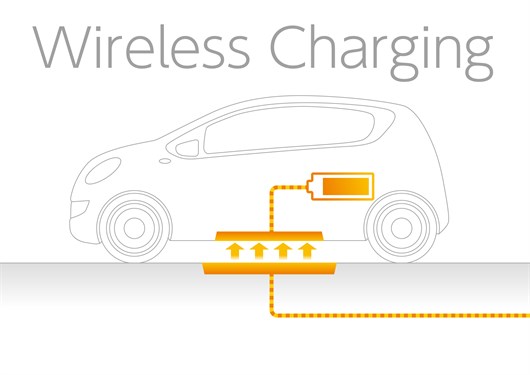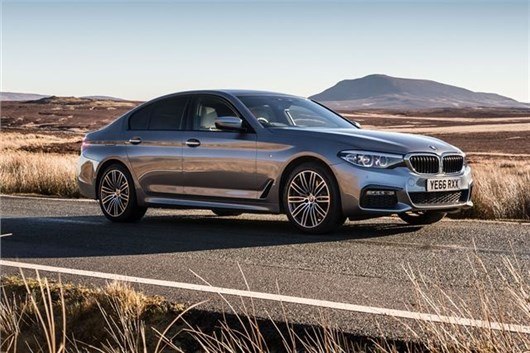Disabled groups call for wireless EV charging

Wireless electric vehicle (EV) charging should be introduced to overcome the accessibility issues disabled motorists face with the current charging system and ensure that they are not ‘left behind’ in the switch to electric cars.
That’s the message from Disabled Motoring UK (DMUK), a charity for disabled drivers, passengers and Blue Badge holders.
Its chief executive Graham Footer believes that with the Government’s ban on the sale of new petrol and diesel cars in 2030, wireless charging (also known as inductive charging) is essential to help disabled motorists make the switch to EVs.
He said: “If the Government promise of leaving no one behind is to be realised, then wireless charging will need to be given much more serious consideration.”

Almost one in ten new cars in the UK are bought on behalf of disabled people but owning an electric car is more difficult for those who need to use public charging points as most have not been designed with disabled people in mind.
Fazilet Hadi, head of policy at Disability Rights UK, described the current situation as a “Wild West”, with companies seemingly able to install charging points “without considering the needs of all street users”.
She said that “a considerable number of wheelchair users struggle with the accessibility of current charging points”.
“Current systems either block pavements, meaning people walk into them, or the cables are trip hazards for people with visual or mobility impairments,” she said.
“Wireless charging does away with such dangers.”

There are two types of wireless EV charging: static, where a car parks on a charging pad or dynamic, where the car is charged wirelessly on the move.
The former could provide a solution for disabled motorists at public car parks or for home charging.
Although no electric cars on sale in the UK have wireless charging capability, Hyundai Motor Group has been working with WiTricity to develop the technology and the Genesis GV60 is set to have it as an option. A number of other manufacturers are also trialling the technology.
BMW ran a pilot in Germany which has since been expanded to the United States with customers providing feedback on using wireless charging technology to charge BMW 530e plug-in-hybrids.

Mercedes-Benz is also eyeing the technology. A spokesperson said that wireless charging could be a “very convenient solution” for its customers so it is observing and evaluating the technological development “and a possible introduction into our products”.
Various trials of wireless charging technology have been taking place in the UK. In October 2021 Char.gy launched a 12-month trial in Marlow, Buckinghamshire, with car sharing platform Hiyacar, using 10 Renault Zoes fitted with an aftermarket induction charging kit, while in Nottingham 10 Nissan and LEVC electric taxis have been fitted with wireless charging hardware to trial taxi rank-based charging.
"We have provided £10 million of funding to develop wireless charging technologies." DfT spokesperson
A spokesperson for the Department for Transport (DfT) said: "We recognise the diverse needs of different user groups and that different zero emission vehicle infrastructure technologies may be required to meet those needs.
"That is why Government is supporting a wide range of infrastructure innovation projects, including their design, development, and use.
"We have provided £10 million of funding to develop wireless charging technologies, recognising the many accessibility benefits.
"This includes removing cables on pavements for pedestrians, the need to lift heavy cables, and removing barriers to plug them in."
Work is also underway by the British Standards Institution (BSI) to create national standards that set a minimum level of accessibility for EV charging infrastructure.
How does wireless electric vehicle charging work?
Wireless electric vehicle (EV) charging works through electromagnetic induction.
Electricity is passed from a magnetic coil in the charging pad on the ground to a magnetic coil on the underside of the vehicle.
All the driver needs to do is park on the charging pad, although it’s important that the coils are aligned.
Nissan is combining its wireless charging system with automated parking (Advanced Parking Assist) to minimise the risk of misalignment.
How fast is wireless electric vehicle charging?
The technology is still being developed so it is difficult to give accurate charging times.
However, charging efficiency is in the region of 80 to 90 per cent - equivalent to that of cable charging.
How much does wireless EV charging cost?
As the technology is in its infancy it’s difficult to give figures but it is more expensive than cable charging. For that reason, it’s unlikely to replace cable charging but could be a solution alongside it.
Can I check if an electric vehicle charging point is available?

What grant can I get for an electric car home charger?


 Sarah Tooze
Sarah Tooze
 Honest John Awards 2017: Land Rover Discovery Sport named Most Popular SUV for second year in a row
Honest John Awards 2017: Land Rover Discovery Sport named Most Popular SUV for second year in a row
 2022 Smart #1 SUV: price, specs and release date
2022 Smart #1 SUV: price, specs and release date
 2023 Ferrari Purosangue SUV: Prices, specs and release date
2023 Ferrari Purosangue SUV: Prices, specs and release date
 Citroen DS3 Racing revealed
Citroen DS3 Racing revealed
 Infiniti adds diesel to the range
Infiniti adds diesel to the range
 Volvo XC90 chosen as SUV of the year at 2014 Honest John Awards
Volvo XC90 chosen as SUV of the year at 2014 Honest John Awards
 March new car registrations better than expected
March new car registrations better than expected



![2021 Kia Picanto 1.0 GT-line 5dr [4 seats]](http://images.honestjohn.co.uk/imagecache/url/crop/90x60/https/assets.heycar.co.uk/t_default-export/f_auto/application_assets/vehicles/pictures/ff1b9baf69bd4bc44bd0cd9b2e2eded3/3513907f7145a04012286d2faf8e3195.jpg)

.jpg)






john sid on 8 February 2022
Hi i am disabled 63 years old i use a WAV wheelchair access vehicle for my now diesel Mercedes sprinter, as i am vurtualy wheelchair bound and cant walk i use eother my , mobility scooter to get about , i live in a bungalow on a street with no off street parking my van is outside a outside about 50ft away how would i charge an electric van ?
Edited by john sid on 08/02/2022 at 22:26
Lesley Crosby on 15 August 2022
I'm a disabled EV user , So far I'm seeing more pros than cons to EV ownership, Cost being the main incentive at the minuteMy main concern, and I've already approached my MP regarding this is with this weeks chatter on social tariffs for vulnerable customers. I get a very good deal with Octopus with cheap overnight electric. I don't want to see me having to choose between tariffs and now worry whether I'm not going to be just Heat or Eat but finding myself having to choose between losing my independence too!!
My major gripe with public charging points is being a person with differing mobility capabilities is that the charging points always seem to be at further most point away from the place you want to go, oh and ICE drivers abusing the ev points and using them as parking dpaces
Add a comment